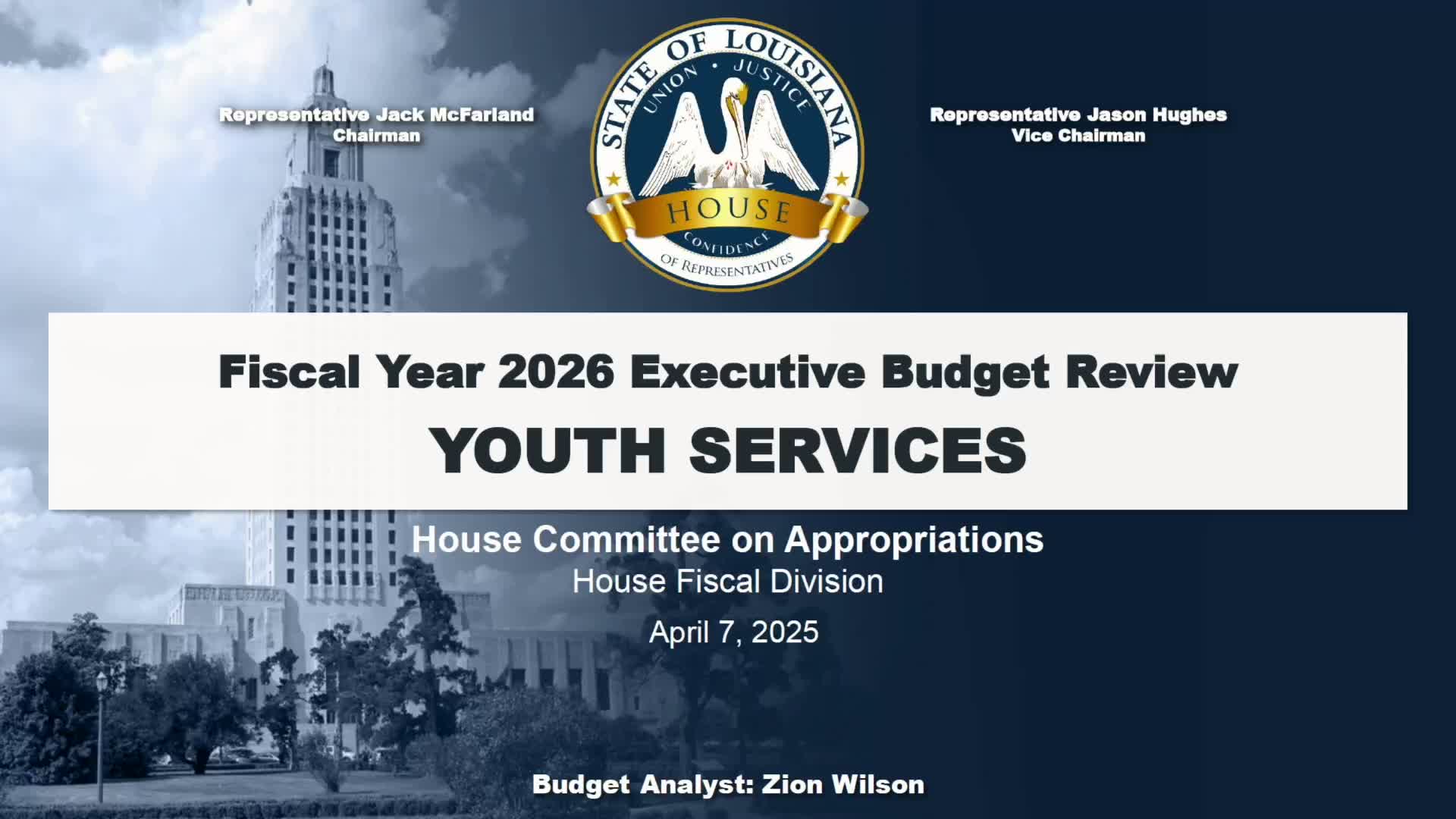Appropriations hears plan to reopen Jensen as juvenile reception center; OJJ seeks 77 staff and $15.4 million operational funding
Get AI-powered insights, summaries, and transcripts
Subscribe
Summary
House Appropriations reviewed the Office of Juvenile Justice FY26 request, including reopening Jensen Center as a reception/diagnosis facility with 44 beds, 77 additional positions and an operational budget of $15.4 million; lawmakers questioned capacity, turnover and mental‑health services.
The House Committee on Appropriations on April 7 considered the Office of Juvenile Justice’s FY26 budget and a plan to reopen the Jensen Center as a juvenile reception and diagnosis facility.
House Fiscal Division slides outlined the OJJ FY26 recommendation of $197.9 million total, of which $175.9 million is state general fund. Presenter explained the Jensen Center operational request: “This secured care facility will be a juvenile reception and diagnosis center that will be used as a primary intake facility for youth entering OJJ's custody,” the presenter said, describing assessment processes for medical, psychological, educational and social work evaluations.
OJJ asked for $15.4 million to operate Jensen in FY26, including transfer of $2.8 million already budgeted for 31 positions from the Acadian Center and an additional $12.7 million to fund 77 more positions, a medical contract and 44 beds. The department requested the additional staff as part of the facility stand‑up; the presentation listed a departmental recommended total of 1,070 authorized positions and 139 vacancies as of Dec. 30.
Committee members raised staffing, pay and turnover concerns for juvenile justice specialist positions. Undersecretary Jason Starnes said entry pay for juvenile justice specialist 1 is about $18 an hour and the department has extended training from about three weeks to roughly five weeks to improve retention. He described career progression: specialists move from level 1 to 2 and 3 through time and performance and the job includes shift work, overtime and challenging behavior management.
Members also asked about capacity. OJJ leaders said they currently have about 40 youth in local juvenile detention centers awaiting state beds; the agency is not housing juveniles out of state. The presentation noted secure care capacity changes and that Jensen would add roughly 72 beds once fully standing up new facilities (agency officials said interim moves could add about 44 beds).
Lawmakers questioned access to mental‑health services for youth, and OJJ officials said some behavioral and mental‑health treatment is provided under the agency’s medical contracts and local linkage; they noted limits on Medicaid coverage for youth inside secure care, which the presenters said prevents OJJ from billing Medicaid for certain care. The committee asked for additional recidivism and outcomes data to evaluate which programs reduce reoffending.
The Appropriations hearing did not record committee action on the request; OJJ said it would follow up with additional data on turnover, recidivism outcomes and implementation details for Jensen.
